1. To what extent does the notion of political agency help to understand political change?
I started my ethnographic career in the Pakistani city of Quetta in the summer of 1995. I used to visit mosâfer-khâna, modest inns where Afghans were staying for a few nights before continuing their journey while on the move between their country of origin, Iran or the Arabian Peninsula. Brokers and remittance specialists, smugglers and moneychangers, acquaintances and fellow countrymen could be found as well as updates on the fighting in Afghanistan or possible job opportunities in Iran. These were hubs where was organized the intense circulation of people, goods and information.
I once asked a middle-aged man why he had left Afghanistan. He burst out laughing: ‘Don’t you watch television? Don’t you read the newspapers? Haven’t you heard that the Soviets came to my country and destroyed it?’ As a novice ethnographer, I had lost my credibility. But this small mishap helped me realise that my interlocutors’ trajectories could not be understood in terms of simple flight, that it was more fruitful to document their tactics and strategies than to reconstruct their motivations, to ask ‘how’ rather than ‘why’ they moved.
For me, the notion of agency – be it conceived as social, economic or political – takes its significance from the strong belief developed early on, that in spite of the hardship they were facing, the people I was meeting in these mosâfer-khâna were not mere victims compelled to leave their homeland in the face of a towering threat, with the vague hope of one day being able to return. They were social beings adapting to the world system, developing a variety of responses that could not be fully grasped by the formal label of ‘refugee.’ They had social, economic and political assets they were able to use. Mobility was one of them. Some people stayed behind in their place of origin to fight or look after the fields; some went to the Afghan Refugee Villages in Pakistan and received food rations and housing; some went to cities like Quetta or further afield to Iran, Kuwait, the United Arab Emirates and Saudi Arabia to earn a livelihood, benefiting their whole dispersed family through a remittance system. Members of domestic units were not only diversifying their geographical locations but also their political affiliations and economic activities as a response to uncertainty. They would then have a needed flexibility to adjust to political developments in Afghanistan or sudden changes in the attitude of the authorities of their host countries.
Witnessing the so-called refugee crisis in Europe, I would go even further in considering that the mobility of people coming from Afghanistan – but also Pakistan, Iraq or Syria – has to be understood beyond a series of regional conflicts as a form of protest against the global repartition of wealth and security, as well as a subversion of classical forms of political territoriality. As such, more than an expression of political agency, it must be conceived as a real political action.
2. Are Area Studies still relevant to understand contemporary dynamics of political and social transformation?
“Tell me how you divide the world and I will tell you who you are!” As Edward Said taught us, the academic and artistic depictions of Islam and the Middle East prevailing in Europe have to be understood in relation to colonial and imperial expansion.
But while the essentialization of cultural areas has been criticized for a long time in the social sciences, every day in the media we can see discourses explaining political processes in terms of cultural differences grounded in discrete territories. Paradoxically, anthropologists appear ill-equipped to publicly respond to Hungarian Prime Minister Viktor Orban for instance, who claims that Islam does not belong in Europe, probably unaware that Muslim states flourished in Spain long before Magyar tribes settled in the Pannonian Basin.
Before Marshall Hodgson or Ulf Hannerz, Alfred Kroeber used the term “oikoumene” in the 1945 annual Huxley Memorial Lecture to designate “an interwoven set of happenings and products” spanning from Western Europe to China, from the Near East to Japan, past and present. For him, not only Eurasia but also the New World were spaces for meaningful comparison, characterised by a history of interregional exchanges and circulations. For him, what happened in eighteenth-century Japan was relevant to understanding contemporary developments in Britain. Areas and transversal linkages were not incompatible.
Jane Guyer (“Anthropology in Area Studies,” Annual Review of Anthropology 33, 2004, pp. 499-523) writes that area studies may serve as a platform for fruitful disciplinary controversies and interdisciplinary dialogue. Indeed, annual conferences of regional associations such as MESA (Middle East Studies Association) are unique opportunities for anthropologists to meet historians, geographers, or political scientists, and discuss common interests. Fully aware of the dangers of essentialism, Guyer’s defence of area studies is also grounded in a moral argument. Transcribed to my experience, Afghanistan is not only a research site, it is the dwelling place of people with whom I have spent time, people I care about, people I feel accountable for.
To respond to the trumpet of Viktor Orban, as anthropologists and citizens we need to combine an acute awareness of past and present interlinkages with a moral commitment to the places we visit and the people we meet.

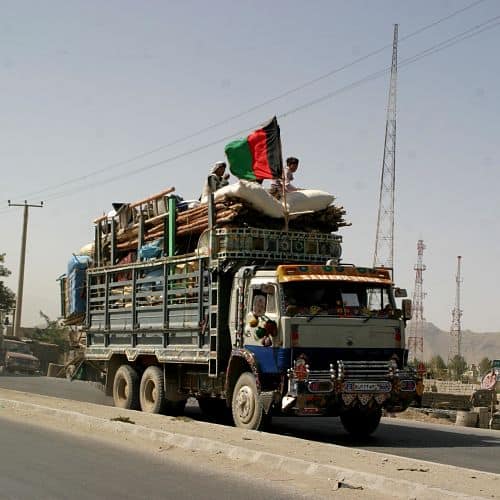




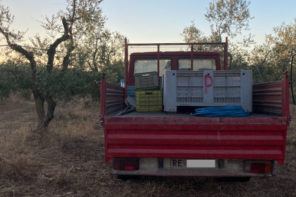
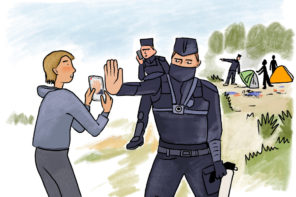
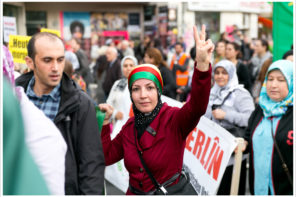
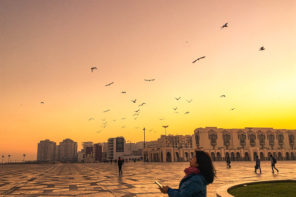
I think this piece https://www.zedbooks.net/blog/posts/fuck-you-zizek/ expands on this piece well